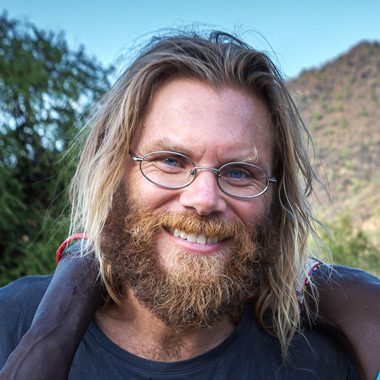The Kalash people, also known as Kalasha or Kafir, are an ethnic group made up of about 3,000 people. They live in the Chitral Valleys, in the Hindu Kush mountain range in Pakistan. Most of the Kalash are spread across the Rumbur, Brumbret and Birir Valleys. The Kalash are goat herders and practice subsistence farming.
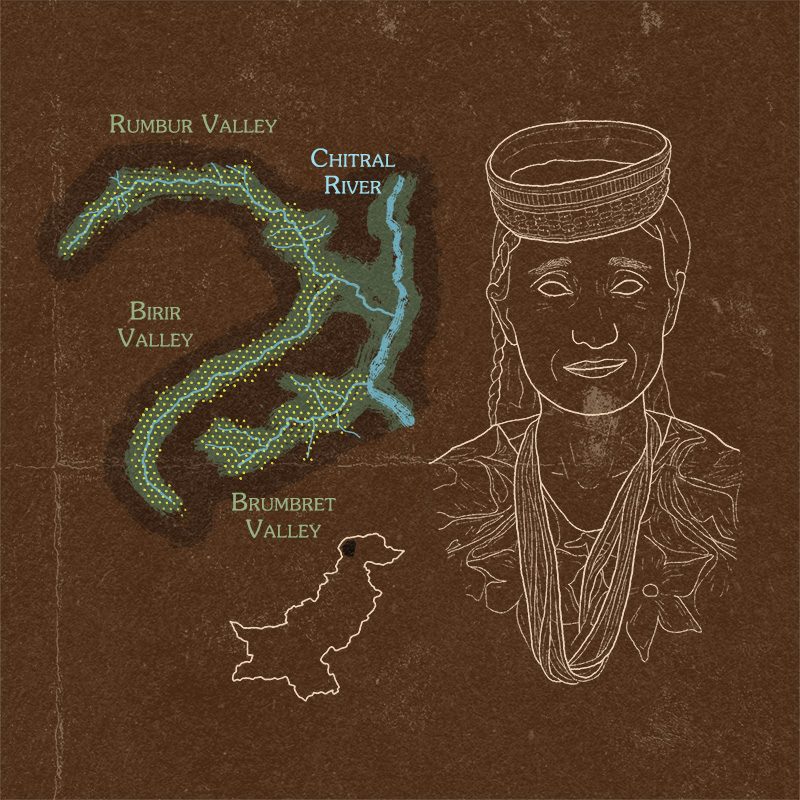
Location of the Kalash people in the territory of Pakistan.
In the mid-1970s, the first passable highway was built in the Chitral valleys. This fact allowed the entry of education, the army and tourism; that have caused great socioeconomic changes in the area. The Kalasha, especially those who reside in the most isolated towns, have a strong sense of identity and fervently defend their culture and religion.
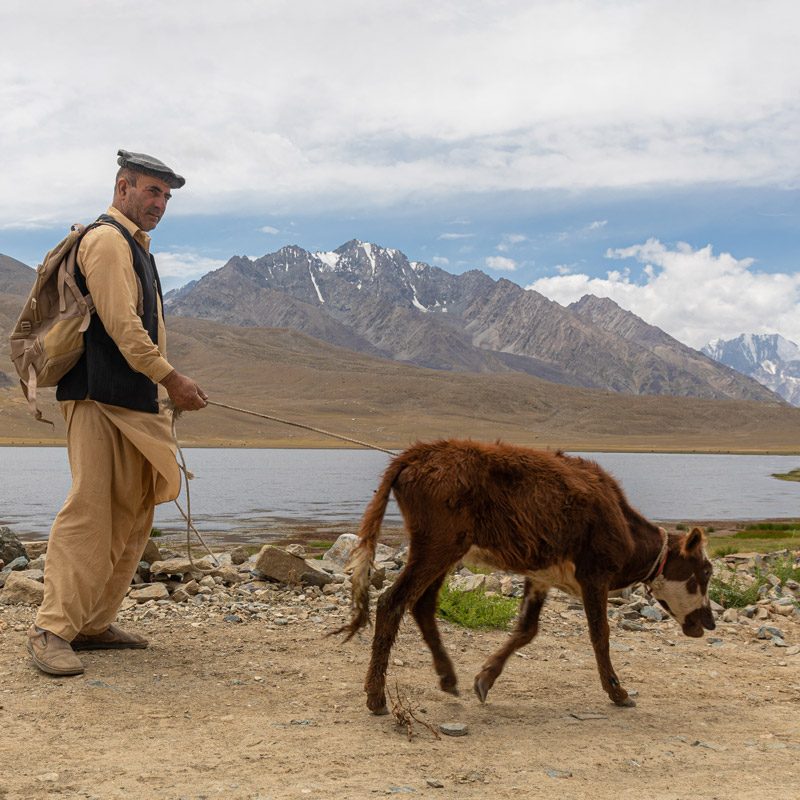
Kalash shepherd in front of the Hindu Kush mountain range.
Kalash people's origin
According to legend, the Kalash have Caucasian features, fair complexions, and light eyes because they are descendants of Alexander the Great. Their physical appearance contrasts sharply with that of their Pashtun and Kho neighbors. Nowadays, the origin of the Kalash people remains unknown.
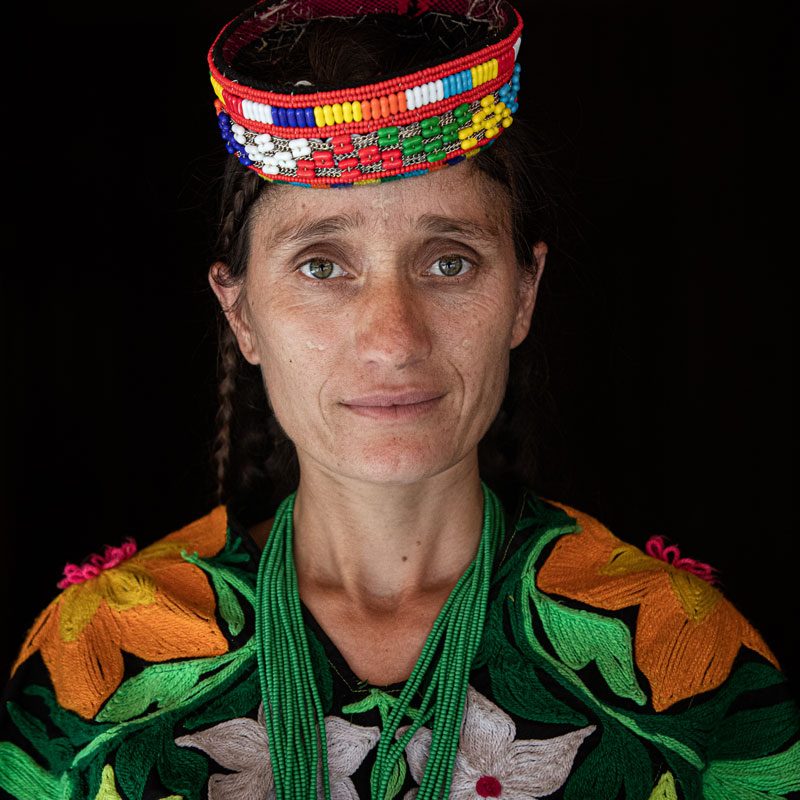
Colourful aesthetic
The Kalash people are noted for their unique culture, animistic rituals, and incredible clothing. Kalash women wear long black robes with colorful embroidery, headdresses and beaded necklaces. Some women still have small tattoos on their cheeks, forehead and chin. In addition, they usually leave their hair very long and collect it with long braids.
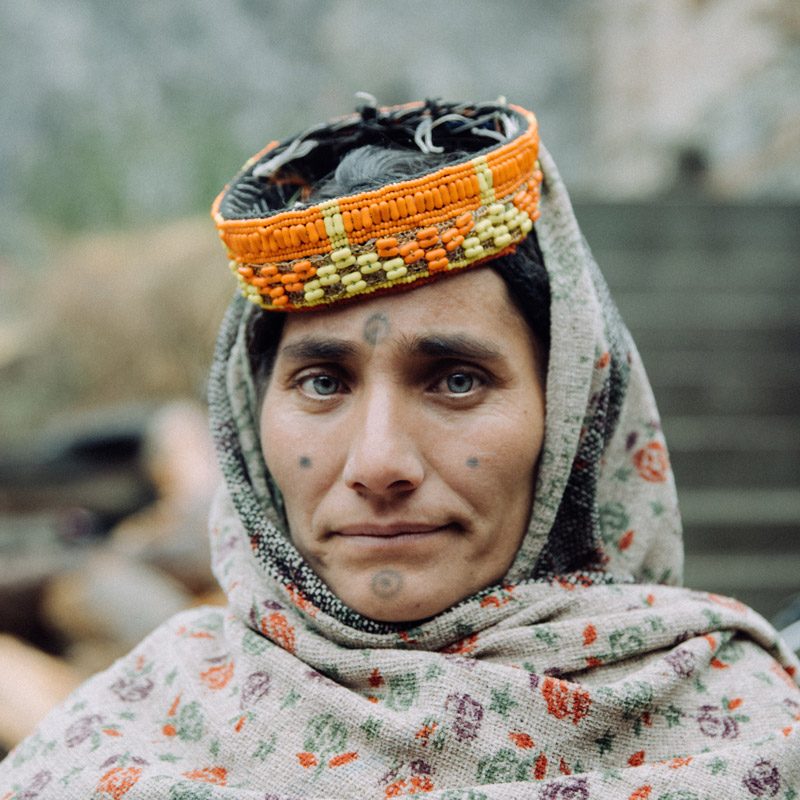
Woman from the Kalash people with facial tattoos.
Do you want to meet the Kalash people?
Discover the culture of the Kalash people on our trips to Pakistan. Click here to see our scheduled trips to Pakistan.
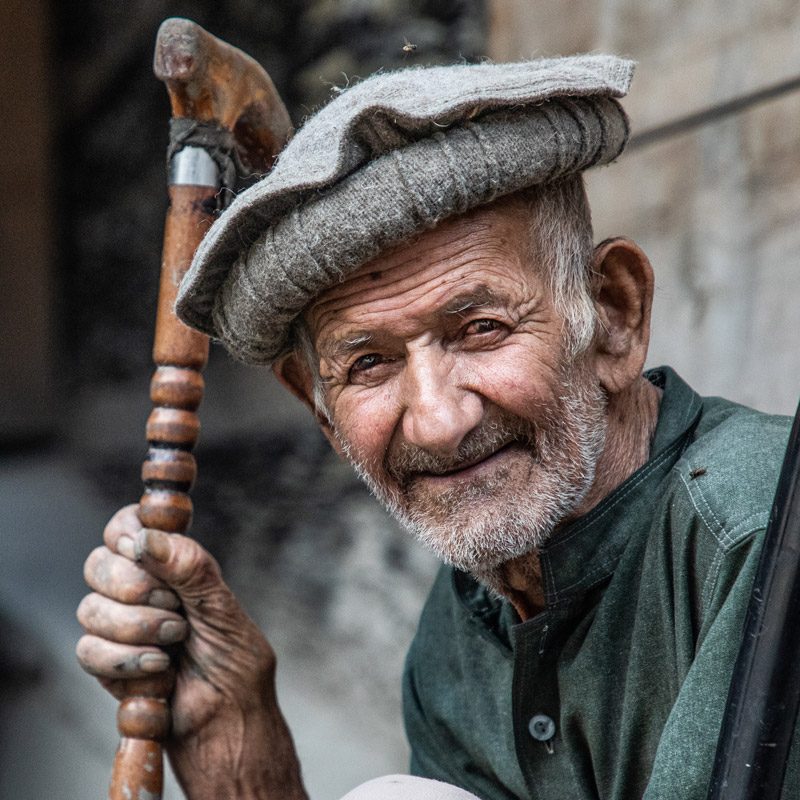
Kalash elder in traditional clothing.
Instead, Kalash men have adopted the 'shalwar kameez', the Pakistani national dress, which they combine with vests over it. They also wear traditional North Pakistani hats.

In contrast to some neighboring cultures, Kalash men and women live together and are allowed contact in public spaces. However, girls and women are sent to the 'bashaleni' during menstruation, until they "recover their purity". The 'bashaleni' is a community building where the women live during the period. They are also forced to give birth there.
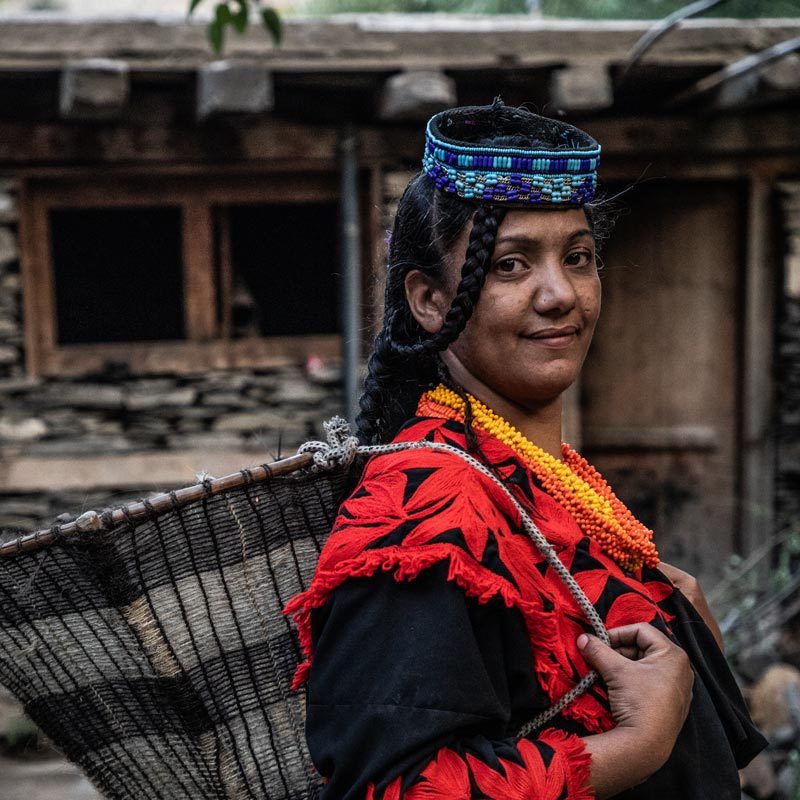
Meeting with a Kalasha woman carrying a handmade basket made from vegetable fibers during a trip to Pakistan.
Elopement (to run away secretly especially to get married without parental consent) is common in the Kalash Valley, mostly among women who are already married to another man. In these cases, the suitor must not only pay the dowry to the bride's family, but must also return to the husband the dowry that he paid before the wedding.
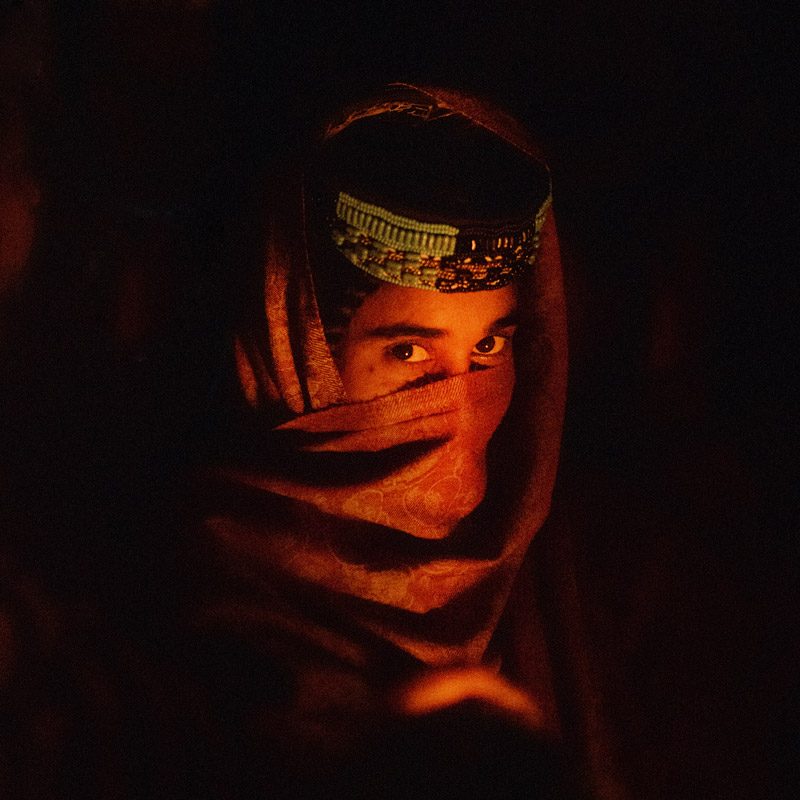
Kalash people's belief system
The traditional Kalash religion is animistic and polytheistic. It comes from an ancient branch of Hinduism, which was influenced by the beliefs of the neighboring areas of pre-Islamic Nuristan. The Kalash still keep different religious practices and rituals alive. Numerous Kalash gods have shrines and altars scattered throughout the valley, where goat sacrifices are regularly offered. The Kalash have a close relationship with the crows, whom they consider to be their ancestors. That is why they care for them and feed them attentively.

Different festivals and traditional rituals of the Kalash people have fire as an element in common.
Death is perceived positively, since they believe that the soul of the deceased will separate from the body in order to reunite with those of his departed friends and relatives. That is why they leave the coffins in the open air, to facilitate the separation of body and soul. Traditional funerals are large parties in which music and dance abound.
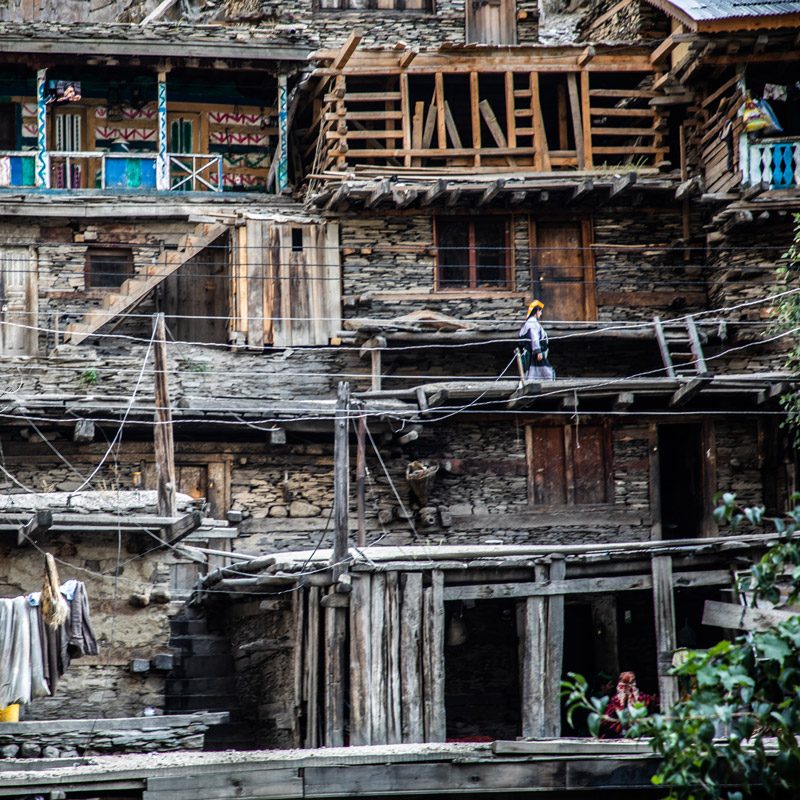
The Kalasha villages feature beautiful vernacular architecture.

Visit to the Kalash people during a trip to Pakistan.
© Photos by Aníbal Bueno taken during a trip to Pakistan.
